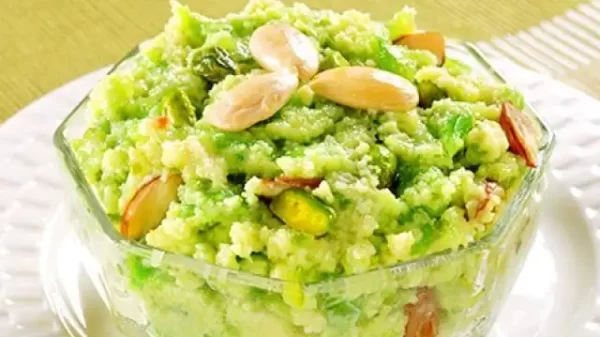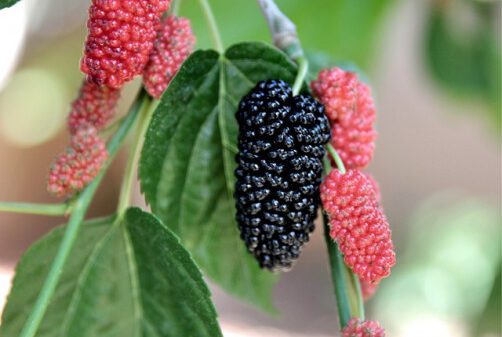Is dark chocolate really good for your health?
Humans have been using chocolate in one form or another for hundreds of years. It usually comes in the liquid form of cocoa, which is extracted from cocoa beans.
In some cultures, sugar, milk is added to it, and it is served in shiny packaging. These people still traditionally eat cocoa, but meanwhile, it has become a topic of debate whether chocolate can be good for our health.
For example, says Margie McCullough, senior scientific director of the Epidemiology Research Center at the American Cancer Society, the Kuna Indians of Panama’s San Blas Islands have low blood pressure, which does not increase with age, and heart attacks. , stroke, diabetes and cancer are relatively rare there and they live longer.
And contrary to the scientific fact that everyone agrees that excess salt can raise blood pressure, they have about as much salt in their diet as the average American.
Margie McCullough visited the Kona Indians to find out what they eat on a daily basis. They discovered that they were consuming about four cups of cocoa per day mixed with water and a small amount of sugar.
But McGolig cannot credibly attribute the Kona Indians’ ideal health to cacao consumption, especially when they eat twice as much fruit and four times as much fish as the average American. . In addition, they generally lead more active lives than people living in Western countries.
Joanne Manson, professor of medicine at Harvard Medical School, says many other observational studies have investigated the heart benefits of dark chocolate eaters, but the studies may be biased because people who eat more chocolate have Worry less about your weight. They can also be healthy, she adds.
In one study, researchers looked at the diet and health of 20,000 people and found that eating up to 100 grams of chocolate a day, including milk chocolate, was associated with a lower risk of heart disease and stroke. They looked at other factors that might influence it. They also included smoking and exercise levels, and they said the reasons for this could be factors other than chocolate’s benefits.
And then an extensive clinical trial was conducted that looked at diet and lifestyle as well as other possible factors. The research was based on the idea that cacao’s potential health benefits may be due to its high levels of flavonoids, which are also found in other plant berries and tea compounds.
A study of cocoa supplement and multivitamin outcomes based on 21,000 people found that taking 400 to 500 milligrams of cocoa flavanol supplements daily reduced blood pressure and inflammation in the body, reducing the risk of dying from heart disease. can
Manson, the study’s lead author, said the scientists used supplements rather than actual cocoa because different brands of chocolate can contain different amounts of flavonoids and vary greatly depending on harvesting, manufacturing and processing. can
Dark chocolate may contain four times more flavonoids than tea, but research shows that the flavonol content is reduced during the manufacturing process.
Gunter Kohnle, professor of nutrition and food science at the University of Reading, says there is currently no consensus on the amount of cocoa flavonols that will give you health benefits.
On the other hand, the European Food Standards Authority (EFSA) says that around 200mg of cocoa flavonoids or ten milligrams of dark chocolate is beneficial, with recent data showing that around 500mg per day is likely to make a greater difference to our health. May be. This is equivalent to a small 30g bar of chocolate.
Kuhnle says: ‘I don’t think any way to increase the flavonol content of chocolate will make it a ‘health food’.’
There are other things in dark chocolate that we don’t know much about. One of their few sources besides coffee is the plant molecule theobromine.
Chris Alford, professor of applied psychology at the University of the West of England, says that although theobromine is a psychoactive substance in the same family as caffeine, it gives you a ‘more relaxing high’ than caffeine. can And the darker the chocolate, the sweeter it will be.
‘If you’re eating a lot of dark chocolate, you can get a real kick, and the theobromine kick or hit can be better than the caffeine hit,’ he says.
For those who fear that chocolate increases the risk of heart disease, some researchers say that there is actually no need to avoid it.
Dark chocolate also usually contains sugar, but one way to avoid this is to choose chocolate with a higher cocoa content than milk chocolate.
The dark side of chocolate
Examining the effects of cocoa flavonol supplements has also overlooked other components of dark chocolate, such as sugars and saturated fat. Dark chocolate often contains cocoa butter, which is high in saturated fat, which has been linked to an increased risk of heart disease.
However, eating small amounts of dark chocolate can help curb unhealthy eating habits, says Dwayne Miller, a nutritionist at Aston Medical School.
‘Small amounts of chocolate won’t be harmful and will also build your relationship with chocolate, as you can enjoy small amounts without feeling guilty,’ he says. His bitterness makes him self-limiting.’
The problem is that the higher the cocoa flavonoid content in chocolate, the more bitter it tastes, and the more bitter the taste, the lower its sales.
“There’s a conflict with good amounts of cacao in terms of making it edible and enjoyable,” says Mailer.
Matters become more complicated when it comes to whether it is possible that the fat and sugars in chocolate help make the flavonoids more bioavailable, meaning they are easier for the body to digest.
‘Some of these flavanols are complex organic compounds, and one way we can make them edible is by sticking sugars in them,’ he says.
There hasn’t been enough research looking at the cocoa flavanol and sugar content in chocolate to draw conclusions about how sweet it should be.
Plus there’s still no way to know how much cocoa flavanols you’re getting.
“Chocolate is not a health food, and given the amount of sugar and fat it contains, it’s likely that eating too many flavonols could have negative effects rather than reaping the benefits,” Kuhnle says.
A quest for taste There seems to be a rise in small ‘bean-to-bar’ companies producing high-volume chocolate with a focus on flavor preservation rather than any potential health benefits.
But what if the process of preserving the flavor of the cocoa bean also happens to result in healthier chocolate?
Martin O’Dar, co-founder of the Fire Tree chocolate brand, says cocoa beans grown on the Pacific’s Solomon Islands are picked at just the right time to ripen.
Farmers then break open the cocoa beans and ferment them for six days before drying them. Some of the dried beans are then sent to Firetree in the UK where they are roasted whole.
According to O’Dear, it used to be done that way, but things changed in the early part of the 20th century.
Chocolate companies depend on two crops from farmers, he says. Main crop which is harvested from November to January and then intermediate crop which is produced between January to June.
‘Intermediate crops are small and of slightly inferior quality, and were not initially marketed,’ he says. Then the companies started buying them at a discount, and farmers realized they were selling good beans at a lower price, so they started mixing good crops in mid-crop.’
Although you can find flavanols in many different foods besides chocolate, studies show that dark chocolate can fit into a healthy diet.
‘This meant that chocolate companies were getting different sized beans that required different roasting times. So they decided to start opening the shells so that they could roast only the pulp.
Be that as it may, the truth is that small chocolate makers were on the hunt for something because roasting the whole bean, rather than just the nibs, often required longer roasting at lower temperatures.
We know that the longer we cook vegetables, the less nutrients they retain. But whether the same can be said about dark chocolate and its fruit remains to be seen and more research is needed.
“A large amount of dark chocolate a few times a week is fine as long as you’re avoiding excess calories,” says Manson, “but it shouldn’t be considered a health food that you overeat. let’s try.’
She says: ‘Try to increase the flavanols in your diet through tea, berries, grapes and other fruits, along with reasonable and moderate amounts of high-cocoa chocolate.’








